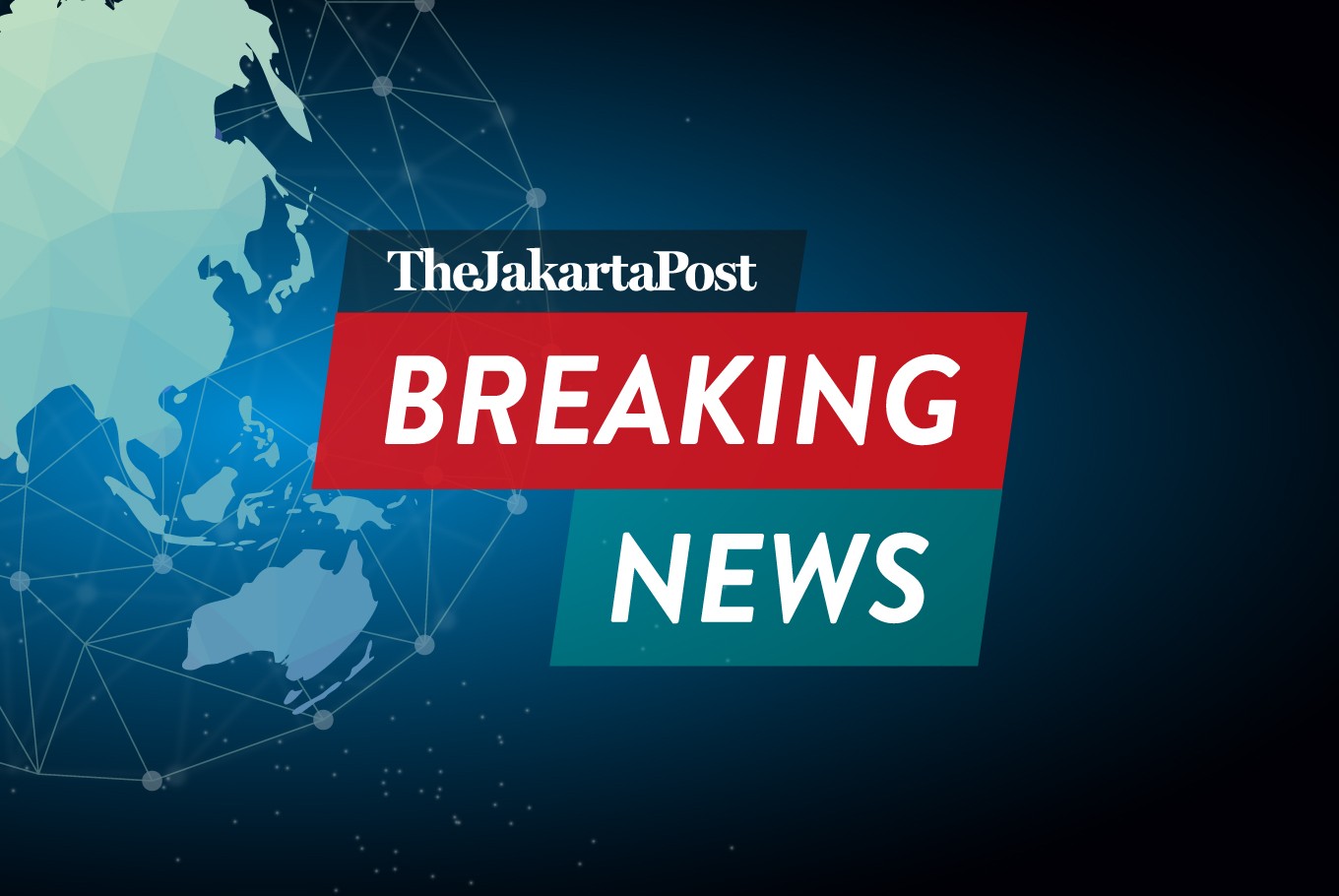Popular Reads
Top Results
Can't find what you're looking for?
View all search resultsPopular Reads
Top Results
Can't find what you're looking for?
View all search resultsTrading suspension looms as Indonesian stocks plunge another 4%
Indonesia’s benchmark stock index plunged deeper on Friday, trading down more than 4 percent during the morning session and prompting the bourse operator to call for an emergency press briefing.
Change text size
Gift Premium Articles
to Anyone
I
ndonesia’s benchmark stock index plunged deeper on Friday, trading down more than 4 percent during the morning session and prompting the bourse operator to call for an emergency press briefing. The latest sell-off has been mainly blamed on the coronavirus spreading rapidly outside of China.
The Jakarta Composite Index (JCI) was down 4.4 percent at 5,290 at 10:55 a.m., a level unseen since December 2016. The morning session closed at 5,311.96 points at 11:30 a.m., down 4.04 percent from Thursday's close. The market is set to reopen 2 p.m.
The decline adds to a 2.69 percent plunge on Thursday, when foreign investors posted Rp 1.05 trillion (US$75.1 million) in net sells of domestic stocks, and falls in line with a global market rout over fresh fears that the coronavirus disease 2019 (COVID-19) is spreading rapidly outside of China.
Indonesia Stock Exchange (IDX) president director Inarno Djajadi said that, if the drop in the JCI reached 5 percent, the bourse would suspend trading for a few hours but reopen within the same day.
“We’ve prepared a crisis protocol [for the event that] it falls 5 percent,” Inarno told The Jakarta Post on Thursday. “We’ll monitor the situation closely.”
If the stock index fell by 10 percent, stock trading would be suspended for the whole day, he added. The IDX has announced a press briefing for later today.
Global share markets headed for the worst week since the darkest days of the financial crisis in 2008 as investors braced for the coronavirus to morph into a pandemic and derail world economic growth, Reuters reported.
Read also: Global shares head for worst week since 2008 financial crisis
The MSCI all country world index fell 3.3 percent on Thursday to bring its losses so far this week to 8.9 percent, on course for its biggest weekly decline since a 9.8 percent plunge in November 2008. The US’ Down Jones slumped 4.4 percent on Thursday’s close. Japan lost 2.5 percent, Australia dropped 3 percent and South Korea slipped 1.4 percent.
On Friday, all of the bourse’s nine sectoral indices were in the red during the session before lunch break. The decline was led by miscellaneous industry, which plummeted by 5.65 percent. Diversified conglomerate PT Astra International, a blue chip stock, plunged 6.72 percent. Cement producer companies’ stocks such as PT Indocement Tunggal Prakasa and state-owned PT Semen Indonesia, as well as diversified petrochemical giant PT Barito Pacific declined by around 7 percent.
The agriculture sector index followed the decline, down by 5.3 percent, as agribusiness company PT Salim Ivomas Pratama plummeted 12.3 percent.
Despite the rout, foreign investors seemed to have used the opportunity to buy back Indonesian stocks as the IDX recorded a total of Rp 61.59 billion in net foreign buys as of 11:30 a.m.
Panin Sekuritas equity analyst William Hartanto told The Jakarta Post on Friday that the JCI had entered a market crash phase in a technical manner.
“The uptrend that had been created since 2009 broke when the index fell below the 5,940 level,” he said by text message.
Read also: Stocks near 3-year low as foreign investors post huge sell-off amid virus fears
He attributed the crash to the COVID-19 outbreak all over the world as investors are panicking over concerns that the virus could cause the global economy to continue to slow.
According to the World Health Organization, there were 459 new cases and 44 deaths in 37 countries as of Wednesday. China reported 412 new confirmed cases.
The coronavirus has infected more than 80,000 people and killed nearly 2,800, the majority in China. Cities in the world’s second-largest economy are in lockdown, with factories temporarily halting production and travel warnings for China issued by countries around the world.
Aside from the virus, William also attributed the JCI’s rout to the investment mismanagement case implicating state-owned insurers PT Asuransi Jiwasraya and Asuransi Sosial Angkatan Bersenjata Republik Indonesia (Asabri), which prompted the Attorney General’s Office to freeze 800 securities accounts.
“The case caused transactions in the market to quiet down since the case unravelled,” he said
William continued that he expected the market to continue to decline until the COVID-19 outbreak could be contained. He projected that the JCI would dip to around 5,060 to 5,250 by the end of the first quarter of this year.
He suggested that market players adapt their strategies to book profits. “The crash is not the end of the stock market,” he said. (est)










